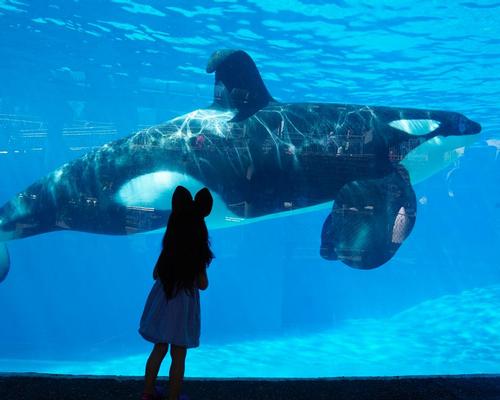09 May 2017
SeaWorld sinks as Easter delay sees Q1 revenue drop 15 per cent
BY Tom Anstey

The delayed Easter break has had a significant effect on SeaWorld, with a significant revenue decline of US$33.8m (€31m, £26.1m) in the first quarter of 2017.
For the period ended 31 March, total revenues for the quarter were US$186.4m (€170.8m, £144m), down 15 per cent compared to US$220.2m (€201.8m, £170.1m) for the same period in 2016. The company generated a net loss of US$61.1m (€56m, £47.2m) compared to a net loss of US$84m (€77m, £65m) the year prior.
Like other operators, SeaWorld attributed the decline primarily to a shift in the timing of the Easter holiday into the second quarter of 2017 which also impacted the timing of spring break for a number of schools. Attendance had a decline of 14.9 per cent – approximately 491,000 visitors. For the year-to-date figures were essentially flat, accounting for the late Easter break.
The first quarter report has yielded some positive results indicating recovery after a tough few years, with season pass sales up nearly 6 per cent for the period, while the company expects adjusted earnings of US$360m (€330m, £278.1m) for the full year.
SeaWorld’s cost cutting initiative is also paying dividends, with operating expenses for the quarter decreasing by US$23m (€21m, £17.8m) to US$157.3m (€144.2m, £121.5m). According to SeaWorld, the company remains on pace to achieve its targets for its previously announced cost optimisation programme, which is expected to result in US$40m (€36.6m, £30.9m) net savings by the end of 2018.
"Given the improving attendance trends we saw in April, and the incredibly robust lineup of new attractions we are launching in the coming weeks, we are well-positioned going into our seasonally important second and third quarters," said SeaWorld president and CEO, Joel Manby.
“We expect to drive attendance through the continued introduction of fun and meaningful experiences for our guests, and will work to improve ticket yields through increased use of new strategic and tactical pricing initiatives."
In March, Manby said that financial discipline remained a top priority for the operator, with cuts spread across the company’s 12 theme parks, including its SeaWorld parks in Orlando, San Diego and San Antonio, in addition to its Sesame Place attraction in Pennsylvania and Busch Gardens in Florida and Virginia. The company’s headquarters in Orlando were also affected.
Improving its financial discipline is one part of a Five Point Plan to turnaround the struggling company, with SeaWorld also working to reposition its brand from animal entertainment to ‘Experiences that Matter’, addressing challenges such as the Blackfish backlash, deliver distinct guest experiences that are fun and meaningful, pursuing organic and strategic revenue growth and finally improving financial discipline.
Close Window